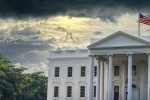Tax Insights: Liberal party tax platform ─ What it could mean for you and your business
May 01, 2025
Issue 2025-20
In brief
On April 28, 2025, Canadians re‑elected a federal Liberal minority government. The Liberal Party of Canada’s election platform does not propose any sweeping general corporate or personal income tax or GST/HST rate changes. Instead, key tax initiatives in the platform would:
- increase the scientific research and experimental development expenditure limit to $6 million for certain corporations
- expand existing clean energy investment tax credits (ITCs) to encourage investment in critical mineral exploration and extraction
- extend the full rates for the carbon capture utilization and storage ITC to 2035
- reduce the tax rate on the lowest personal income tax bracket by one percentage point, starting July 1, 2025
- eliminate the GST on the sale of newly built homes valued at up to $1 million for first‑time homebuyers
Given that it will be a minority government, the Liberals will require the support of another federal party to enact their proposals. As a result, it is unclear whether all of their proposals will be implemented, and to what extent compromises or modifications must be made to the proposals and other policies to gain the support of another party in the House of Commons.
In detail*
Business tax measures
Scientific research and experimental development (SR&ED)
Effective July 1, 2025, the Liberals will increase the annual SR&ED expenditure limit, under which certain corporations are entitled to earn an enhanced 35% refundable ITC, to $6 million. For taxation years beginning after December 15, 2024, the 2024 federal Fall Economic Statement (FES) had proposed an increase to the expenditure limit, from $3 million to $4.5 million, for Canadian-controlled private corporations (CCPCs). The FES also proposed to extend eligibility for the enhanced 35% refundable ITC to eligible Canadian public corporations (CPCs), so CPCs would also be eligible for the increased $6 million SR&ED expenditure limit.
Intellectual property
The Liberals will establish a Canadian patent box, which would provide a preferential tax rate to income derived from certain types of intellectual property (IP). Effective July 1, 2025, the proposed tax rate would be half of the current federal corporate income tax rate, so (assuming the full provincial abatement applies) 4.5% for CCPCs eligible for the small business deduction and 7.5% for other corporations, to encourage the development and retention of IP created by research and development in Canada. The previous Liberal government had consulted with industry stakeholders about creating a patent box regime in early 2024, so its implementation timeline suggests that further consultations may not be necessary. More information will be required to determine how this will interact with the SR&ED program and other tax incentives.
Critical minerals
The Liberals will encourage investment in critical mineral exploration and extraction by:
- broadening the critical mineral exploration tax credit to include critical minerals necessary for defence, semiconductors, energy and other clean technologies
- including technical studies (e.g. engineering, economic and feasibility studies) as eligible activities under the Canadian exploration expense
- modifying the clean technology manufacturing ITC to include critical mineral mine development expenses for brownfield sites and expand the list of priority critical minerals
Clean energy ITCs
The Liberals commit to maintaining the existing six ITCs that support clean energy and technology, as follows:
- carbon capture utilization and storage (CCUS)
- clean technology, clean hydrogen, clean technology manufacturing, clean electricity, and electric vehicle supply chain
They will also extend the full value of the CCUS ITC to 2035 (the rate is currently scheduled to decrease after 2030).
Multi-unit residential building (MURB) capital cost allowance (CCA)
Effective starting the 2025 taxation year, the Liberals propose to reintroduce a tax incentive allowing investors in MURBs to claim CCA to create or increase a rental loss, which can be used to offset other income (currently losses from rental properties cannot be created or increased by claiming CCA, except for certain corporations). The 2024 federal budget introduced an accelerated CCA for new eligible purpose-built rental housing, for construction that began after April 15, 2024 and available for use before January 1, 2036; the MURB CCA proposal would apply to owners of properties that qualify for this accelerated CCA deduction. It is unclear whether CCA on qualifying MURB properties (and interest and other expenses related to limited partnership investments involving these properties) would continue to be treated as a “tax preference” item that could trigger alternative minimum tax for individuals and trusts.
Capital gains deferral
The Liberals plan to provide a deferral of tax for capital gains realized by “private owners” on the sale of residential or non-residential buildings, if they:
- sell to a non-profit operator, land trust or non-profit acquisition fund, and
- reinvest the proceeds into new purpose-built rental housing,
for capital gains realized on qualifying sales between July 1, 2025 and June 30, 2035.
Artificial intelligence (AI) deployment tax credit
The Liberals will introduce a 20% AI deployment tax credit for small and medium‑sized businesses involved in qualifying AI adoption projects (with a job creation requirement).
Flow-through shares (FTSs)
The Liberals will expand the FTS program to corporations operating in the AI, quantum computing, biotechnology and advanced manufacturing industries, starting July 1, 2025. Funds raised through the issuance of FTSs must be spent on eligible expenses within 24 months; these expenses will then flow through to the owners of the FTS (rather than being deducted by the corporation itself), up to the value of the share at the time of issue.
Personal tax measures
Personal tax rate
Effective July 1, 2025, the Liberals plan to decrease the personal income tax rate by one percentage point (to 14%) for the lowest tax bracket, which in 2025 applies on income up to $57,375. It appears, however, that this could also reduce the value of many existing personal tax credits for all taxpayers, as these credits are calculated using the lowest tax bracket rate.
Capital gains deferral
The Liberals plan to provide a deferral of tax for capital gains realized by “private owners” on the sale of residential or non‑residential buildings for capital gains realized on qualifying sales between July 1, 2025 and June 30, 2035 (subject to certain conditions, see “Business tax measures” above for details).
Flow-through shares (FTSs)
The Liberals will expand the FTS program to corporations operating in the AI, quantum computing, biotechnology and manufacturing industries, starting July 1, 2025 (for further details, see “Business tax measures” above).
Labour mobility tax deduction (LMTD) for tradespeople
The Liberals propose to expand the LMTD to allow eligible tradespeople who travel more than 120 kilometres (current rules require travel to be 150 kilometres or more) from their home to a job site to deduct their expenses. They also commit to consulting with industry partners on increasing the annual deduction limit (maximum $4,000) for these expenses.
Health care workers hero tax credit
The Liberals will “immediately legislate” a refundable tax credit of up to $1,100 per year for personal support workers (PSWs).
Registered Retirement Income Fund (RRIF)
For one year, the Liberals plan to reduce by 25% the minimum amount that must be withdrawn from a RRIF.
Disability tax credit (DTC)
The Liberals will review and reform the process to apply for the DTC and consider expanding the DTC eligibility criteria to include additional impairments.
Other tax measures
Goods and services tax/Harmonized sales tax (GST/HST) New Housing Rebate
Effective March 20, 2025, the Liberals propose to increase the GST/HST New Housing Rebate for first‑time homebuyers, which will effectively eliminate the GST (or federal portion of the HST) on the purchase of newly built homes valued at up to $1 million; this will save first-time homebuyers up to $50,000. The 100% rebate will be phased out on a linear basis for first-time home buyers that purchase eligible homes with a value between $1 million and $1.5 million (thresholds not indexed to inflation). A first-time homebuyer will qualify for the rebate if at least one of the buyers meets the definition used for the first‑time home buyer incentive, which includes individuals who have gone through the breakdown of a marriage or common‑law partnership. The existing GST/HST New Housing Rebate of up to $6,300 would continue to be available for new home purchases that do not qualify for the increased rebate.
Carbon tax
Before the election, the Liberals cancelled the consumer carbon tax (CCT), by decreasing the effective carbon tax rate to zero by regulation. They plan to introduce legislation that would repeal the CCT, but intend to maintain and amend the output‑based pricing system for large industrial emitters. In addition, they propose to:
- use a reformed carbon credit market to finance property improvements by homeowners (e.g. roof repair/replacement, sump pump installation or foundation crack sealing) to protect against extreme weather events
- develop a carbon border adjustment mechanism to tax imports from countries that do not have comparable carbon pricing
Tax administration and enforcement
The Liberals propose to:
- introduce automatic tax filing, beginning with low‑income households and seniors, to expedite access to benefits like the Canada child benefit and GST/HST credit
- conduct an expert review of the corporate tax system, through a lens of fairness, transparency, simplicity, sustainability and competitiveness
- work with international partners to establish international tax rules as proposed by the Organisation for Economic Co‑operation and Development
- leverage technology at the Canada Revenue Agency to identify and prosecute tax evasion, fix loopholes and strengthen enforcement
Other benefits
Employment Insurance (EI)
The Liberals will prioritize enhancements to the EI system. The previous government already announced measures to protect workers in response to tariffs imposed by the United States, including:
- temporarily waiving the one‑week EI waiting period
- suspending separation rules for a six‑month period, so that individuals are not required to wait until their severance pay expires to receive EI
- improving access to EI through increased regional unemployment rate percentages
Support for workers
The Liberals have committed to:
- providing an Apprenticeship Grant of up to $8,000 to registered apprentices working in skilled trades, effective April 1, 2025 (to be converted to an interest‑free loan if the apprentice does not complete their program within an established timeline)
- maintaining the Apprenticeship Service program, which provides up to $10,000 for eligible employers per new apprentice hired
- expanding the Union training and innovation program to include training spaces for nurses, PSWs and teachers
- launching the Indigenous pathways to prosperity skills and training fund to support partnerships and facilitate skills training and education opportunities for Indigenous communities, with a focus on training for doctors, teachers and builders
They also propose to provide a benefit of up to $15,000 to fund new skills training for workers in the middle of their careers who retrain in priority sectors. Priority sectors include manufacturing, health care, construction, AI and technology.
Outstanding tax proposals
When the Canadian parliament was dissolved on March 23, 2025, many proposed measures from the minority Liberal government’s 2024 federal budget, 2024 FES and other measures had not yet been implemented. On March 21, 2025, Prime Minister Mark Carney announced that the federal government will cancel the proposed increase in the capital gains inclusion rate, from ½ to ⅔, which was scheduled to be implemented on January 1, 2026. We expect the Liberals to move forward with most, or all, of the remaining initiatives, which include:
- increasing the lifetime capital gains exemption, from $1,016,836 to $1,250,000, effective June 25, 2024
- providing an elective exemption from the excessive interest and financing expenses limitation (EIFEL) rules for certain borrowings relating to purpose-built rental housing
- reinstating the enhanced first‑year CCA deduction for certain qualifying property and the immediate write‑off for newly acquired manufacturing and processing and specified clean energy equipment and zero‑emission vehicles
- significantly enhancing the SR&ED tax incentive program
- implementing the clean electricity ITC and making various amendments to the other clean economy ITCs
- introducing an accelerated CCA deduction of 10% for new eligible purpose-built rental projects and allowing immediate expensing for CCA class 44, 46 and 50 properties
For more information on these and other outstanding tax proposals, see our Tax Insights “Parliament has been prorogued: Status of outstanding tax proposals.”
The takeaway
Individuals and corporations should pay attention to how these tax proposals (and any changes to the proposals) could impact them. The timing of when the proposals will become effective is uncertain (even though the Liberal Party platform does suggest a target date for some of them). It is also unclear whether, or to what extent, the Liberals will be able to obtain the support of another federal party to allow legislation implementing election platform measures (and outstanding 2024 budget and FES proposals) to be passed in the House of Commons.
* If available, proposed effective dates for each measure are noted.
Contact us



Contact us


















